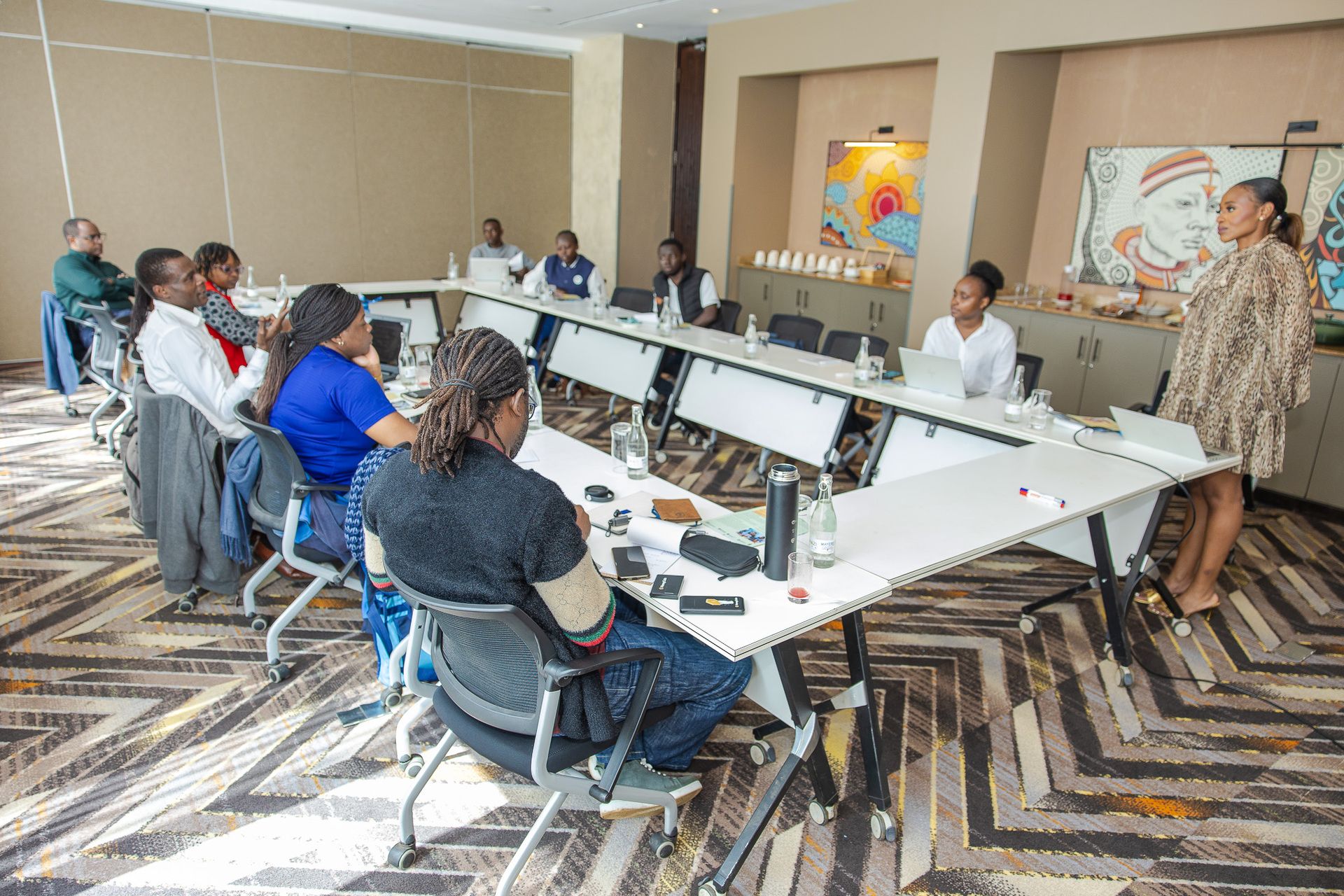- The 254 Report
- Posts
- Inside APHRC's Bold Mission to Expose Commercial Determinants of Health
Inside APHRC's Bold Mission to Expose Commercial Determinants of Health
AFRICAN POPULATION AND HEALTH RESEARCH CENTER ACORDS MEDIA TRAINING

Reflecting on the October 30 health journalism training, APHRC revealed this powerful insight:
"Eight hours of sitting now carries the same cardiovascular risk as daily smoking. We are sitting for long time. And then now almost risk of cardiovascular diseases are similar to somebody who is smoking cigars."
This statement encapsulates the core mission of the ACORDS project: to expose how corporate decisions impact public health in Kenya and beyond.
The ACORDS Mission: Four Years to Transform Health Policy
Among the core aims conveyed by the project leaders is this understanding:
"We know the magnitude of the problem. Now we want to understand why this is happening and how to prevent it."
The NIHR-funded ACORDS initiative unites institutions in Kenya, Ghana, South Africa, and the UK to research and counter commercial determinants of health.
Four Strategic Research Pillars
Context Analysis
The research team outlined the flow of corporate influences:
"You find that directors of these companies are similar or a director has moved from one alcohol company to another... there's cross-learning, but beyond that, there's also power that exists."
Economic Analysis
Delving into costs, the team explained the true economic toll:
"When you calculate healthcare costs, lost productivity, and orphan care, the true cost dwarfs any tax benefits. A 50-year-old dying from alcohol-related causes represents 20 productive years lost."
Governance Analysis
Highlighting contradictions in governance, researchers commented:
"There might be a health program on consequences of consuming alcohol. Then the next advert can be promotion of alcohol. People will not trust you... you lose credibility."
Participatory Research & Equity Analysis
On community engagement, the project notes:
"Normally when you think about research, you think about studies done by researchers and given to policymakers. There's very little community engagement... Here we are bringing in the community and civil society to the discussion."
The Early Influence Strategy
A Jesuit maxim, cited by The 254 Report:
"Give me a child until he is seven, and I will show you the man."
Digital Marketing: The Unregulated Frontier
The shift to digital marketing was summarized:
"You find a lot of food marketing to children happening on social media through influencers... You pay your influencers, you can capture a lot."
The Economic Deception
Challenging industry claims, researchers stated:
"When you calculate all these at population level, healthcare, lost productivity, orphan care, car accidents from drinking, the income they bring is much, much less than the costs."
Reflecting on colonial legacies, they added:
"They say Africa has 'cheap human labor.' What does 'cheap' mean? It's a human being... This is a kind of colonial mindset and exploitation."
Expected Deliverables
ACORDS commits to delivering:
Peer-reviewed publications in health and social sciences
Analyses on strengthening health equity governance
Evidence-based policy guidance on alcohol, UPFs, and fossil fuels
Methodological papers on research in commercial determinants
Synthesis reports for decision-makers at multiple levels
Anticipated Impacts
The program aims for:
Strengthened evidence for regulation of unhealthy commodity industries
Improved governance via conflict of interest management
Informed fiscal policies reducing harms from UCIs
Empowered communities and civil society organizations
South-South learning and decolonized global health research
The Journalism Challenge
The APHRC team warned:
"Journalists may find somebody who is 110 years old... He may say 'I always eat meat.' That's a problem. It's only one individual, an outlier. The message becomes 'if I eat meat, I can live to 110.'"
Background: Why This Matters
Contextualizing the disease burden, the researchers observed:
"Kenya is transitioning from infectious to non-communicable diseases because of lifestyle changes.
Moving Forward: Stakeholder’s Role in the Story
The project team invites stakeholders to:
Document health impacts of commercial determinants
Examine industry similarities and differences
Analyze corporate philanthropy and social media influence
Map structural and leadership linkages
Collaborate with communities to co-produce equitable policies
They emphasize:
"These discussions are important because government action is based on priorities. If Journalists can show the health case, you raise awareness and change the agenda."
The ACORDS initiative lays a vital foundation for transforming health policy through rigorous research and media engagement.
Reply